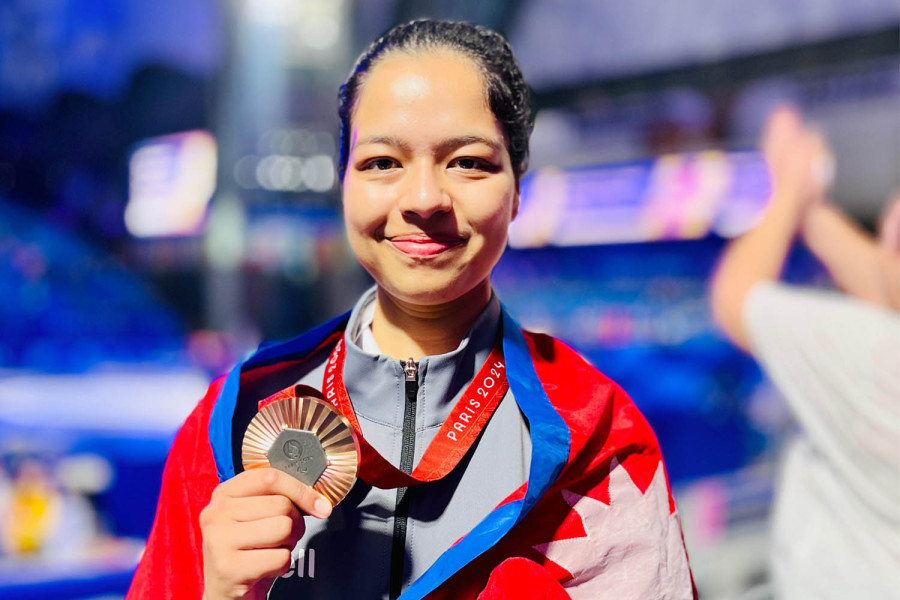Editorial
Palesha’s message from Paris
The success of the 21-year-old paralympian has instilled new hope among young Nepalis.
The 60-year-old jinx has finally been broken. Palesha Goverdhan clinched Nepal’s maiden Olympics-level medal in Paris early on Saturday, sending ripples of excitement and hope across her homeland. Goverdhan seemed destined for success given her stellar track record in international meets over the past few years. Four years ago, Goverdhan, who entered the Tokyo Paralympic Games on a wildcard, had also qualified for the bronze medal final but had lost the bout. Two years later, at the Asian Para Games 2022 in Hangzhou, China, Goverdhan won a medal. She then became the first Nepali paralympian to qualify for the Paralympic Games. And now the 21-year-old has delivered on the biggest stage.
After Goverdhan’s victory, her coach Kabi Raj Negi Lama rightly said that his charge had shattered the assumption that a Nepali could never win an Olympic medal. Yet it had appeared that way only a fortnight ago when none of the seven Nepali athletes who took part in the Paris Summer Olympics could create much of an impact. The usual suspects were blamed for their failure: Nepal’s poor sporting infrastructures, paucity of high-level practice, lack of professionalism, etc. Nepal, it seemed, would have to wait for a long time for Olympics success. That was until Goverdhan bagged the taekwondo bronze at the Paris Paralympics. This sends a vital message to other Nepali athletes as well as the Nepali state.
One, as coach Lama hinted, Goverdhan’s medal breaks down the psychological barrier that a Nepali cannot succeed at the highest level. There is no inherent reason Nepali athletes or para-athletes cannot make their mark if they get the right kind of state support. Concomitantly, the message that a woman with a disability can capture her country’s attention and bring it international fame is no less important in what is still a patriarchal society. Nepali female athletes are world class, as the country’s women football and cricket teams have repeatedly shown. With a little more impetus, the sky’s the limit of what they can achieve.
Goverdhan’s success is also an example of long-term thinking. After her failure to win a medal in Tokyo, Goverdhan pushed herself hard in the following years, and much of the time after that was spent preparing for the next Parlalympics. This suggests that Nepal would do well to start investing for success at Los Angeles 2028 right now as a part of the country’s long term sporting vision.
There have of late been some positive gestures from the Nepali state. For instance, this year’s policies and programmes promises fellowships to 1,000 talented youths in various fields, including in sports. There will be special focus on cultivating women athletes. Similarly, various incentives and allowances have also been declared for the Nepali sports stars who achieve international success. There is also a new emphasis on building new stadiums and upgrading existing ones. If all these schemes materialise, greater international sporting success for Nepal will be guaranteed.
This is crucial. Nepali youths are desperate for home-grown international idols, whose success inspires and is worthy of emulation. If they see their peers compete and even win against the best in the world, their ambitions will soar. This in turn will boost the morale of their country. As we have repeatedly seen, international sporting success is a glue that binds this diverse country closer. The more, the merrier.




 9.7°C Kathmandu
9.7°C Kathmandu














